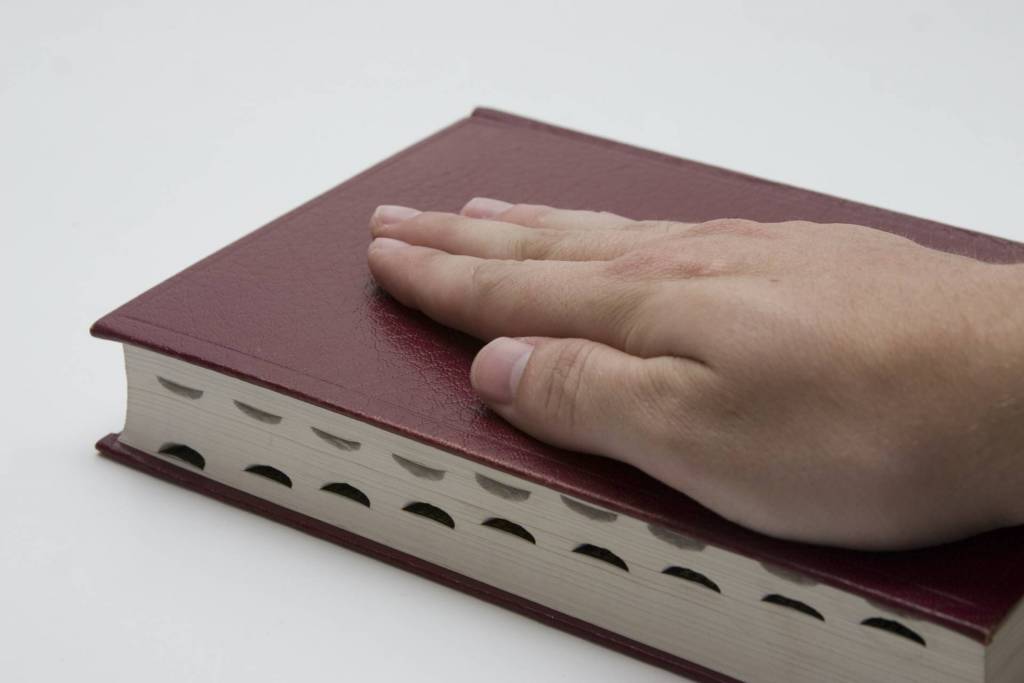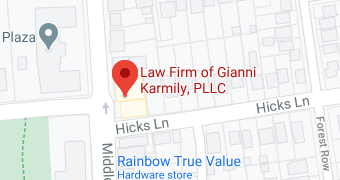Assaulting a police officer in New York is seen as an egregious offense, so assault on a police officer charges and even insulting a police officer in New York can have serious consequences under New York law. Nassau County, Long Island violent crime defense lawyer Gianni Karmily has extensive knowledge of criminal procedure law and has experience handling a wide range of criminal charges, including those involving the assault on a police officer or peace officer.
Don’t wait to seek the legal representation you need–call criminal defense attorney Gianni Karmily to schedule a case evaluation with him regarding your case. You can call our Great Neck location at (516) 630-3405, or you can call our Hempstead location at (516) 614-4228.
New York Penal Law for Assault on a Police Officer
New York has criminal statutes that outline assault on a police officer, which are:
- Assault in the Second Degree: Assault on a Police Officer (New York Penal Law § 120.05)
- Assault on a Police Officer (New York Penal Law § 120.08)
- Aggravated Assault on a Police Officer or Peace Officer (New York Penal Law § 120.11)
In New York, assault upon a police officer charges are generally strict liability offenses. This means that the defendant doesn’t need a specific mental state, and his or her conduct doesn’t need to be negligent or intentional. You can receive an assault on a police officer charge under New York law even if the physical injury happened accidentally. To be convicted, however, the prosecution is required to prove you were intentionally trying to prevent such police officer from performing his or her lawful duties.
In some cases, the prosecution may bring the following related offenses:
- Menacing a Police Officer or Peace Officer – N.Y. Penal Law § 120.18
- Menacing in the Second Degree – N.Y. Penal Law § 120.14
- Menacing in the First Degree – N.Y. Penal Law § 120.13
- Assault on a Judge – N.Y. Penal Law § 120.09
Unlike most states, New York State does not have battery charges. When determining charges for assault vs battery in New York, the battery charges, including those on a police officer, will fall under a menacing charge in New York. If you’re charged with felony assault, having a Nassau County, Long Island felony criminal defense lawyer can help to ensure your rights are upheld under NY Penal Law.
Assault in the Second Degree: Assault on a Police Officer in New York
New York Penal Law (Section 120.05) contains 14 subsections. These are all different New York Assault in the Second Degree Charges. NY Penal Law Section 120.05(3) applies to Assault on a Police Officer or a Peace Officer (as well as several other employment categories).
In New York, someone can be charged with assaulting a police officer, peace officer, or any other emergency medical services professional if:
- The assault was intended to stop the peace officer engaged in performing his or her lawful duties;
- They caused a police officer or a peace officer to suffer physical injury;
Assault in the Second Degree: Assault on a Police Officer in New York – Elements of New York Penal Law § 120.05
New York Penal Law Section 120.05(3) defines who qualifies as a police officer (Criminal Procedure Law § 1.20.34) or a peace officer (Criminal Procedure Law § 2.10) with respect to Assault in the Second Degree charges. These can include individuals such as:
- Prosecutor (as defined by criminal procedure law)
- Registered nurse and licensed practical nurse
- Sanitation enforcement agent and New York City sanitation worker
- Emergency medical services professional or emergency medical technician administering emergency medical services
- Firefighter, including a firefighter acting as an emergency medical service paramedic or emergency medical service technician administering first aid in the course or performance of official duties as such person
- Medical or related personnel in a hospital emergency department
- City Marshall
- Federal law enforcement agent (or agent acting on behalf of a government agency)
- School crossing guard (according to general municipal law)
- Traffic enforcement officer or traffic enforcement agent
- Employee of Social Services directly involved in an investigation or response related to abuse or neglect of a child, a vulnerable elderly person, or an incompetent or physically disabled person
- Employee of the New York City Housing Authority
These individuals have specific, official duties related to law enforcement or public safety and are afforded certain legal protections under New York law.
What Is A Lawful Duty?
New York Penal Law doesn’t outline “lawful duty” specifically. However, New York jury instructions outline lawful duties as the following.
- Detaining someone when the peace officer has reasonable suspicion to believe that the person has or is engaged in the commission of a crime is a lawful duty.
- Arresting someone when the peace officer has reasonable cause to believe that the person has or is engaged in committing a crime is a lawful duty.
- Stopping a vehicle for which the peace officer reasonably suspects to be engaged in unlawful activity, including vehicle and traffic law violations, is a lawful duty.
The criminal justice system can assess if police officers were justified in making an arrest, but it doesn’t address whether these police officers were carrying out their duties lawfully.
Penalties for Assault in the Second Degree: Assault on a Police Officer or Peace Officer in New York
Under New York Penal Law, assault upon a police officer (assault in the second degree) is a Class D Felony or a violent felony. Therefore, assault on a police officer or a peace officer can mean a 2-7 year prison sentence. For cases with mitigating circumstances, the assault on a police officer or peace officer charge can be punishable by a probation sentence or less jail time.
Assault On a Police Officer in New York: New York Penal Law § 120.08
This assault upon a police officer charge under penal law in that this charge for assault on a police officer or peace officer requires serious physical injury, while assault in the second degree under New York Penal Law Section 120.05 only requires physical injury.
Under NY Penal Law Section 120.08, someone is guilty of assault on a police officer or a peace officer when:
- They intend to prevent a peace officer from performing a lawful duty,
- They cause serious physical injury to such peace officer or such employee.
The Difference Between Physical Injury And Serious Physical Injury Under New York Law
New York’s assault laws define “assault” as any act of physical contact that causes physical injury or serious physical injury, but what’s the difference between these two terms?
In New York criminal law, “physical injury” refers to any injury that causes physical impairment or substantial pain. Such injury could include bruises, cuts, or minor fractures.
On the other hand, “serious physical injury” involves a more severe level of harm that poses a substantial risk of death or causes serious and protracted disfigurement, impairment of health, or loss or impairment of a bodily organ.
While scrapes, lacerations, and bruising are typically considered physical injury, injuries requiring major surgery typically constitute serious physical injury under New York law.
The distinction between a physical injury and a serious physical injury is crucial when determining the severity of the offense.
Penalties for Assault on a Police Officer or Peace Officer in New York
These assault on a police officer charges, under NY Penal Law § 120.08 is a Class C Felony or violent felony. Charges for a Class C Felony are punishable by 5-15 years in prison. In New York, probation isn’t authorized for a violent Class C Felony charge, even if the accused has no prior felony convictions, in most cases.
Aggravated Assault on a Police Officer or Peace Officer in New York: New York Penal Law § 120.11
Aggravated assault upon a police officer or a peace officer under NY Penal Law Section 120.11 requires that the peace officer engaged in the course of performing official duties sustain a serious physical injury, and such injury was caused by a deadly weapon or dangerous instrument.
Someone can commit an aggravated assault upon a peace officer under New York law if:
- They intend to cause serious physical injury
- The accused knew or should have known that the person was a law enforcement officer or a peace officer
- The peace officer was acting within their lawful duty at the time of the alleged crime
- The accused causes serious physical injury using a deadly weapon or dangerous instrument
Charging Aggravated Assault on a Police Officer or a Peace Officer Based on Another’s Conduct
Under New York law, you can be charged with aggravated assault on a peace officer based on the conduct of another individual. So, even if you aren’t the one who causes serious physical injury to the officer, you can still be charged with aggravated assault upon a peace officer if you were acting in concert with such other person.
Penalties for Aggravated Assault on a Police Officer or a Peace Officer
Aggravated assault on a police officer or peace officer is a Class B Felony or Class B Violent Felony. A Class B Felony is punishable by 5-25 years of jail time. For a Class B Felony, probation or jail terms less than 5 years are typically not permissible.
Criminal Defense Strategies For Assault On A Police Officer Criminal Charges
After being charged with assaulting a police officer, the person accused of the crime should immediately contact a local criminal defense lawyer who can help defend against the assault of a police officer charges.
If you have been charged with assaulting a police officer in Nassau County, Long Island, NY, contact Attorney Gianni Karmily as soon as possible. His experience in criminal defense work can help ensure you receive the best possible outcome in your case.
Passive Resistance
In some situations, the defense may concentrate on proving that their client did not present an immediate threat toward the alleged victim or officer at the time of the alleged crime. This is especially effective when the accused individual’s behavior could be described as passive resistance rather than direct aggression.
Lack of Intent
Another potential defense strategy involves arguing that the accused did not intend to assault the police officer. This defense could be based on mistaken identity, lack of awareness of the officer’s presence or status, or the absence of deliberate, violent actions aimed at causing harm.
Even if someone is engaging with police in a rude or angry way, they cannot be arrested for assault on a police officer if they do not act with intent to cause the officer injury or prevent them from doing their job. Additionally, if the accused was not in full control over their actions, often caused by intoxication or mental illness, the defense may be able to use this to prove that the accused did not intend to harm the officer.
Lack of a Deadly Weapon
In cases where a deadly weapon is allegedly an aggravating factor, the defense may be able to assert that the accused never used the weapon or instrument to harm the officer. This can help reduce the charge from an aggravated assault charge to a simple assault on a police officer charge.
Extent of Injuries
Physical injury and serious physical injury have very specific legal definitions under New York law. So, in order for a jury to find the accused guilty of assault on a police officer or a peace officer, the personal injuries sustained by the peace officer need to be legally sufficient. Gianni Karmily will carefully review emergency medical services and medical records that may rebut the allegations that such injury met the legal standard.
Self-Defense
Another common defense against charges of assault upon a police officer is self-defense. In some situations, the defense may focus on showing that the accused had reason to believe that they were in imminent danger of harm from the police officer and that their actions were necessary to protect themselves.
Officer Was Acting Outside of Lawful Duty
A police officer or a peace officer must be actively performing a lawful duty. This defense requires the defense attorney to prove that such authority was not acting within the scope of the law. It’s important to note that police procedure violations aren’t enough to establish that the police officer or peace officer was not carrying out a lawful duty under New York Law (People of the State of New York v. Millhouse).
Nassau County, Long Island Criminal Defense Lawyer for Assaulting a Police Officer Charges
If you are facing charges of assaulting a police officer in Nassau County, Long Island, you need to seek the guidance of a skilled criminal defense lawyer like Gianni Karmily. At the Law Firm of Gianni Karmily, PLLC, we are dedicated to providing aggressive and effective representation for individuals accused of assault on law enforcement personnel.
When you choose our firm to represent you, you can trust that we will work tirelessly to protect your rights and pursue the best possible outcome for your case. We understand the serious consequences that come with assault on a police officer charges, and we are committed to fighting vigorously on your behalf.
Call or contact us via our website to schedule a case evaluation with Attorney Karmily regarding your police officer assault case. We have two locations on Long Island, so call our Great Neck office at (516) 630-3405 or our Hempstead office at (516) 614-4228.









